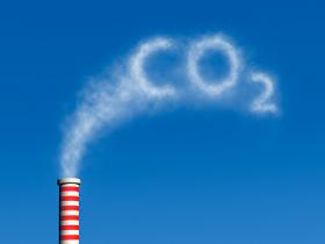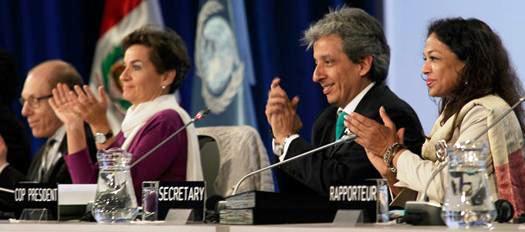
Bonn – A review of all coal projects under validation within the Clean Development Mechanism reveals that they do not actually reduce any emissions. The review also puts under question the methodology which provides the basis for the emission reduction calculation. Environmental groups are now pressuring the CDM Executive Board to put all CDM coal power projects on hold with immediate effect.
Despite heavy criticism, the first coal power plant by Adani Power Ltd was registered as a CDM project in December 2009. According to UN rules, two 660 MW units to be commissioned in 2010-11 in India will receive carbon credits for reducing emissions using a new, efficient coal-based technology compared to conventional coal-fired power plants
But a recent review raises serious concerns about whether the Adani plant would be built anyway, regardless of the CDM revenue. This essential CDM criterion is called “additionality” and ensures that carbon credits are only rewarded to projects that would not happen without the additional CDM support, and would, hence, not reduce any emissions. If built anyway, the 2 Mio expected annual emission reductions from the Adani plant would generate fake carbon credits that an Annex | country can use to avoid making real emission reductions domestically. This ultimately leads to an increase in global emissions.
Eva Filzmoser from CDM Watch lamented, “The United Nations Convention on Climate Change aims to promote a shift away from fossil fuels towards cleaner energy sources. Allowing coal power projects under the CDM completely undermines this objective.”
Wrong Signal to the Carbon Market
Previously, investors have shown little confidence for supercritical coal to get approval under the CDM. However, the registration of the first project by Adani Power Ltd has sent a signal to the carbon market which resulted in re-submission of three coal power projects and the recent registration request of the largest coal power project currently submitted, also by Adani Power Ltd. If registered, the Adani Power Ltd´s project in Mundra, India with a capacity of 4000 MW would be the third largest registered project amongst all currently registered CDM projects, excluding projects that reduce industrial gases HFC-23 and N2O. With a price of 12 € per tonne, the expected 2.831.000 annual emission reductions would generate about 34 Mio € per year.
No Real Emission Reductions from CDM Coal Projects in India & China
A recent analysis by CDM Watch and the Stanford Environmental Law Clinic reviewing the registered Adani Power Ltd project and all 13 coal projects currently pending validation is questioning whether these projects reduce any additional emissions. The review claims that the expected reductions of the 14 potential CDM coal projects, amounting to about 18 Mio annual emission reductions, would not be dependent on the additional CDM revenue. Instead, these projects, of which 6 are located in India and 8 in China, would be implemented anyway as part of national energy policies.
Deborah A. Sivas, Director of the Stanford Environmental Law Clinic, commented, “We have reviewed all coal projects ever submitted and concluded that all projects proposed to date fail in significant ways to comply with the core requirements of the CDM.” The review also reveals significant flaws of the methodology which provides the basis for calculating the emission reductions from the clean coal projects and focuses in particular on the key areas of additionality testing.
For example, the methodology fails to ensure that projects consider all plausible baseline scenarios. Wendra Liang, co-author of the review, commented, “None of the projects considers any renewable energy source such as hydro, geothermal, biomass, wind, and solar to be a realistic or credible alternative to fossil fuel generated power.”
The review also includes a detailed analysis of the investment analysis as suggested by the methodology and used in the 14 projects. Between the 14 projects, the results show 42 noncompliances with the additionality requirements of the CDM.
Bruce Ho, co-author of the review, said, “The methodology falls short in significant areas and leaves too many critical issues open to misinterpretation by project participants and project validators. The flaws of this methodology mean that even if projects meet the requirements of the methodology, they are likely not to comply with the additionality criteria of the CDM.”
CDM additionality expert, Barbara Haya, commented, “The recent findings that CDM coal projects are non-additional must be taken extremely seriously. Non-additional CDM projects are endangering the climate: they create fake carbon credits that increase global emissions and allow industrialized countries to avoid meeting their reduction obligations. These findings show once more that an accurate project-by-project additionality test is infeasible for most projects.”
CER Purchasing Agreements Signed
While the Indian CDM coal power projects don’t have any committed buyers yet, UK´s EcoSecurities, UK´s Carbon Resource Management, Japan´s Mitsui & Co and Switzerland´s Bunge Emissions Fund have signed deals to buy credits from clean coal projects in China. Also Germany´s largest energy utility RWE, which is heavily criticized for its polluting coal plants in Germany, has signed a purchase agreement to buy credits from a coal power plant in China in order to meet its emission reduction requirements in Germany.
Director of the German NGO Forum Environment & Development, Jürgen Maier, commented, “Relieving European power giant RWE and its home country Germany of obligations to reduce domestic emissions by helping build a new coal-fired power plant in China is an abuse of the Kyoto flexible mechanisms.”
CDM Executive Board to take Immediate Action
Based on the significant flaws in the coal methodology, environmental groups are now pressuring the CDM Executive Board to put the methodology on hold with immediate effect during their upcoming meeting starting on 22 March in Bonn. They are demanding that the methodology needs to be urgently reviewed. Moreover, they ask to put on hold projects pending validation immediately. They are also calling on EU governments not to accept non-additional credits from CDM coal projects in order to safeguard the principles of the UN Convention and to avoid non-additional CDM credits.
Pressure to Re-Open Registration of Adani Project
The criticism extends to the Adani project which was registered last year. Ironically, the project was on the agenda of the 51st Executive Board meeting where 10 wind projects were rejected for having failed to prove additionality. However, 2 of these 10 projects were finally registered last month because according to CDM Executive Board Chair, Clifford Mahlung, they were on the “wrong list”. Based on the latest serious concerns that the 2 Mio annual emission reductions of the Adani project are likely to be non-additional, environmental groups are now pressuring the Board to re-open the decision to register the Adani project and to review the additionality of the project.
Source: CDM Watch / German Forum Environment & Development.















